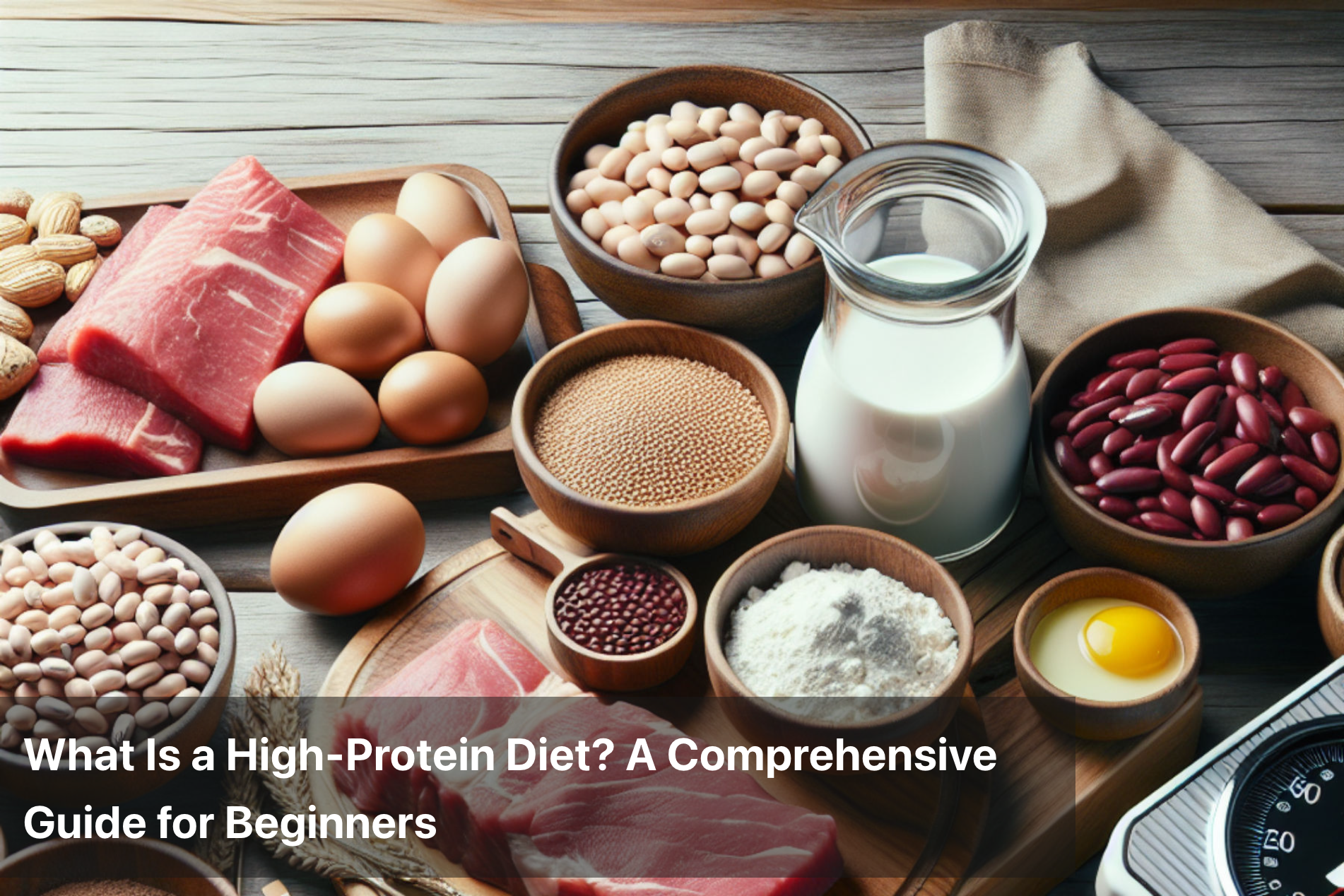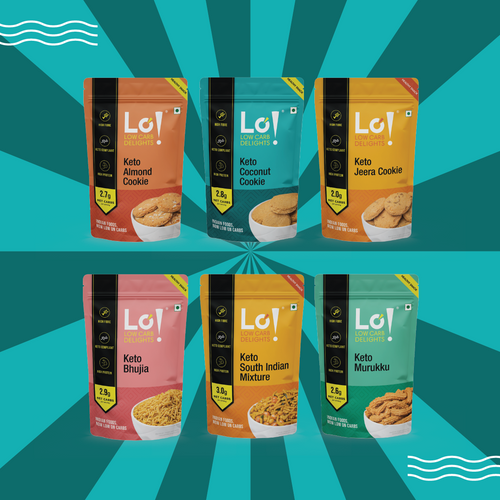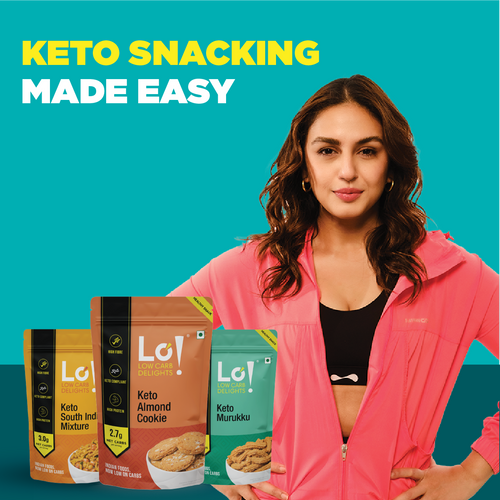
What Is a High-Protein Diet? A Comprehensive Guide for Beginners
A high-protein diet focuses on increasing the intake of protein-rich foods to support various bodily functions, especially muscle repair, metabolism, and weight management. Protein is one of the three macronutrients essential for health, the others being carbohydrates and fats. This diet has gained popularity among those looking to build muscle, lose fat, and enhance overall well-being.
While traditionally associated with bodybuilders and athletes, high-protein diets are now widely adopted by individuals across all age groups aiming for better health outcomes. But what exactly does this diet involve, why is it important, and how can it be followed safely and effectively?

The Role of Protein in the Body
Protein is made up of amino acids, which are the building blocks of life. It plays a crucial role in:
-
Muscle building and repair
-
Hormone production
-
Enzyme function
-
Immune system support
-
Hair, skin, and nail health
-
Transportation of oxygen and nutrients
Without adequate protein, the body struggles to maintain these essential processes, which can lead to a variety of health issues.
Why Choose a High-Protein Diet?
There are several compelling reasons why people shift to a high-protein diet:
1. Weight Loss and Fat Reduction
Protein increases satiety, making you feel full for longer. This helps reduce overall calorie intake without the need for strict calorie counting. Additionally, the body burns more calories digesting protein than it does carbohydrates or fat—a phenomenon known as the thermic effect of food (TEF).
2. Muscle Maintenance and Growth
Protein is vital for muscle repair and growth, especially after physical activity. This is why high-protein diets are popular among athletes and fitness enthusiasts.
3. Blood Sugar Regulation
Protein can slow down the absorption of glucose, helping to maintain stable blood sugar levels. This can be especially beneficial for individuals with insulin resistance or type 2 diabetes.
4. Improved Metabolism
A high-protein intake can support a higher resting metabolic rate, which means the body burns more calories even at rest.
5. Reduced Cravings and Late-Night Snacking
Protein-rich meals help control hunger hormones like ghrelin, leading to fewer cravings and reduced urge for late-night eating.
Common Signs of Low Protein Intake
People who don't get enough protein may experience the following symptoms:
-
Frequent fatigue or low energy
-
Muscle weakness or loss of muscle mass
-
Hair thinning and brittle nails
-
Poor concentration and mood swings
-
Delayed wound healing
-
Increased frequency of infections
Recognizing these signs early can help prevent more serious nutritional deficiencies.
High-Protein Food Sources
|
Animal-Based Sources |
Protein (per 100g) |
Plant-Based Sources |
Protein (per 100g) |
|---|---|---|---|
|
Chicken breast (cooked) |
31g |
Lentils (cooked) |
9g |
|
Eggs |
13g |
Chickpeas (cooked) |
8.9g |
|
Greek yogurt (plain, low-fat) |
10g |
Tofu (firm) |
8g |
|
Salmon (cooked) |
25g |
Quinoa (cooked) |
4.4g |
|
Cottage cheese (low-fat) |
11g |
Edamame (cooked) |
11g |
|
Lean beef (cooked) |
26g |
Tempeh |
19g |
|
Milk (whole) |
3.4g |
Almonds |
21g |
Sample One-Day High-Protein Meal Plan
|
Meal |
Food Items |
Estimated Protein (g) |
|---|---|---|
|
Breakfast |
Scrambled eggs with spinach and cottage cheese |
25 |
|
Mid-Morning Snack |
Greek yogurt with chia seeds |
15 |
|
Lunch |
Grilled chicken salad with chickpeas and olive oil |
35 |
|
Evening Snack |
Handful of almonds and a protein shake |
20 |
|
Dinner |
Baked salmon with quinoa and steamed broccoli |
40 |
|
Total |
|
135g |
This plan can be modified for vegetarian or vegan diets by substituting plant-based proteins accordingly.
Potential Risks of a High-Protein Diet
While protein is essential, excessive intake over long periods can have drawbacks, especially when combined with low fluid intake or pre-existing kidney issues.
-
Kidney strain in individuals with pre-existing kidney disease
-
Dehydration, as protein metabolism requires more water
-
Nutrient deficiencies if other food groups are neglected
-
Digestive discomfort such as bloating or constipation in some cases
To avoid these, it’s important to maintain a balanced diet with sufficient fiber, water, and micronutrients.
Who Should Be Cautious?
Certain groups should consult with a healthcare provider or nutritionist before starting a high-protein diet:
-
Individuals with chronic kidney disease
-
People with gout or high uric acid levels
-
Those with digestive disorders sensitive to high-protein meals
-
Elderly individuals with limited mobility, who may need tailored plans

Debunking Common Myths
-
Myth 1: High-protein diets damage kidneys.
Truth: This is only a concern for individuals with pre-existing kidney issues. Healthy individuals generally do not face kidney problems from increased protein intake. -
Myth 2: You can’t get enough protein on a vegetarian or vegan diet.
Truth: With careful planning and variety, plant-based eaters can meet their protein needs just as effectively. -
Myth 3: More protein always means better results.
Truth: Excess protein beyond the body's needs does not improve muscle gain or fat loss and may simply be stored as fat.
Summary
A high-protein diet is an effective and scientifically backed way to support muscle health, enhance weight loss, improve satiety, and regulate blood sugar. When approached thoughtfully and balanced with other nutrients, it can offer lasting health benefits for people across age groups and lifestyles.
Choosing whole, minimally processed protein sources and integrating them into daily meals ensures sustainability and variety. Whether the goal is fat loss, muscle gain, or better energy levels, a high-protein lifestyle—paired with regular exercise and proper hydration—can be a powerful foundation for long-term wellness.
This Blog post is an initiative by Lo! Foods, to provide accurate and Nutritionist / Doctor approved information related to Health. Lo! Foods is India's leading brand for Everyday Functional Foods. Foods designed for specific Health conditions or Needs. Lo! Foods also runs India's largest range of Low Carb Healthy Cloud Kitchens, under the brand names of Lo!, ProteinChef, ATH (All Things Healthy) and DiabeSmart.















Leave a comment
Your email address will not be published.